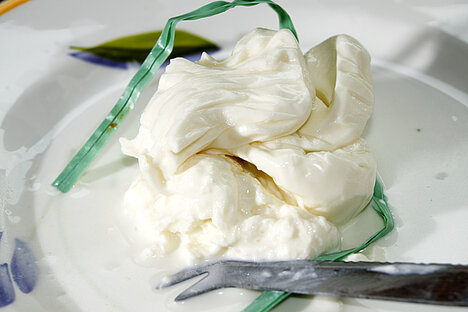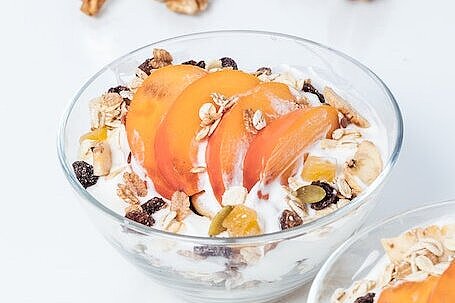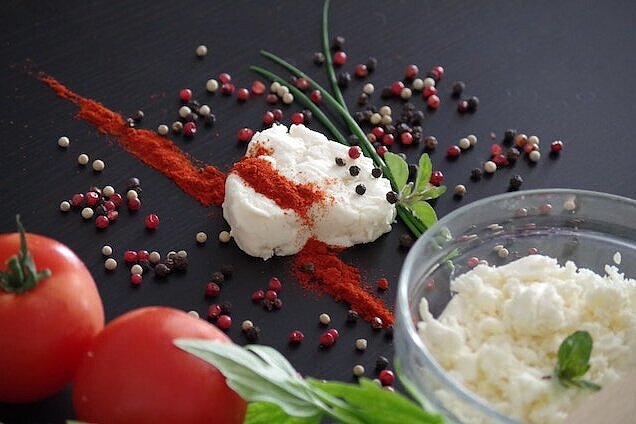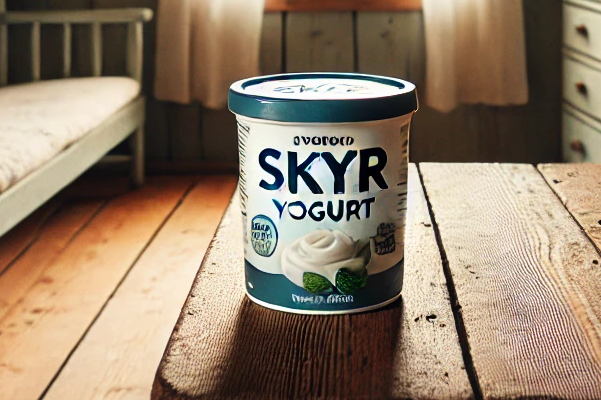Low-fat quark

What is low-fat quark?
Skimmed quark is a dairy product made from skimmed milk. The milk is mixed with lactic acid bacteria and allowed to curdle. The solid mass is then separated from the liquid and salted. The result is a creamy, white quark with a high protein content and a low fat content.
Low-fat quark has many benefits for the human diet. It is rich in protein, which is important for building muscle, and contains calcium, which is healthy for the bones. It is also low in calories and filling, which can help with weight loss.
Why is low-fat quark good for dogs?
Low-fat quark can also be a useful addition to a dog's normal diet. It has the following advantages:
- It is low in lactose, which means that it contains hardly any lactose. This is important because many dogs do not tolerate lactose well and can suffer from diarrhea or flatulence.
- It is easy to digest and can help with gastrointestinal problems. It can be used as a light diet when your dog is ill or recovering from an operation.
- It contains amino acids, which are vital for dogs and which they cannot produce themselves. These are important for the functioning of cells, the immune system and hormones.
- It provides calcium and phosphorus, which are important for your dog's bones and teeth. These minerals must be in a balanced ratio so that they can be optimally utilized.
- It can help you lose weight if your dog is overweight. It is low in calories and fat, but high in protein, which satiates and stimulates the metabolism.
Are there any disadvantages of low-fat quark for dogs?
Although low-fat quark is healthy for dogs, it should not be given as the sole food. It does not cover all of your dog's nutritional needs and can lead to deficiency symptoms if fed too often or too much.
There are also some situations in which you should not give your dog low-fat quark:
- If your dog has an allergy or intolerance to dairy products. This can manifest itself as a skin rash, itching, ear infections or digestive problems.
- If your dog suffers from kidney problems. The high protein content of low-fat quark can put a strain on the kidneys and lead to a worsening of the condition.
- If your dog is taking medication that can interact with dairy products. This can be the case with antibiotics, for example, whose effects can be impaired by calcium.
How much low-fat quark can my dog eat?
The right amount of low-fat quark depends on various factors, such as your dog's age, weight, activity level and state of health. As a rule of thumb, one teaspoon per kilogram of body weight per day is an appropriate amount.
You should not feed low-fat quark every day, but only as an occasional reward or supplement. It is best to mix it into your dog's normal food or give it with some fruit or vegetables to improve their nutrient intake.
Low-fat quark is a healthy food that is also suitable for dogs. It can support your dog's bones, muscles, digestion and immune system. However, it should only be given in small quantities and not as the main food. Make sure that your dog tolerates low-fat quark well and does not have any health problems that would prevent it.
If you notice any signs of hypersensitivity or poisoning in your dog, you should see your vet immediately. We are not a substitute for a vet, but we try to be as accurate as possible. Every dog reacts differently and we recommend you get a second opinion or consult your vet if in doubt.
Stay healthy and take good care of your four-legged friend!😊
Similar to Low-fat quark
Greek yogurt is a dairy product made by draining the excess whey from normal yogurt. This makes it thicker, creamier and richer in protein than conventional yogurt. Greek yogurt also contains less...
Cottage cheese is a fresh cheese made from pasteurized cow's milk. The milk is mixed with lactic acid bacteria and rennet, which causes the milk to curdle and separate into solid cheese grains and...
Skyr is a dairy product that is similar to yogurt, but technically a fresh cheese. Originally from Iceland, skyr is made from skimmed milk that is fermented with special cultures. The result is a...
Ricotta is non-toxic to dogs and can be used in small amounts as a treat or to administer medication. Ricotta contains a lot of protein, which is important for muscle building and cell regeneration....



